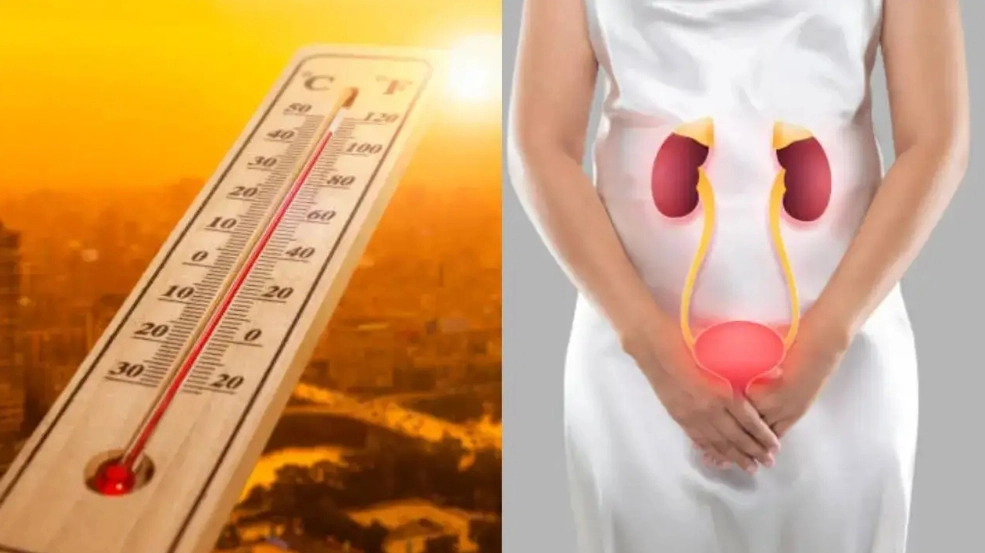
The
Indian Meteorological Department has issued an alert over massive heat waves striking across the northern and western parts of the country. According to experts, rising temperatures significantly increase the risk of heat-related illnesses, presenting dangers to different groups of people—especially the elderly, children, and those with underlying health issues.
According to experts, identifying specific risk factors and taking adequate precautions can help prevent heat-related illnesses and protect those who are most vulnerable.
What happens to your kidney during high heat?
When your body temperature rises, it can severely impact the kidneys, leading to many life-threatening issues like:
Dehydration
High temperatures lead to excessive sweating, leading to dehydration if fluids are not adequately replenished. According to experts, dehydration reduces blood flow to the kidneys, impacting their ability to filter waste products and maintain electrolyte balance.
Sweating in the summer also results in water loss and depletes essential electrolytes like sodium, potassium, and chloride. These electrolytes are essential for maintaining cellular function and nerve impulses, including those in the kidneys.
Low blood pressure affects filtration.
Heat stress can cause your blood vessels to expand as your body can dissipate heat. This dilation causes lower blood pressure and reduces blood flow to the kidneys, affecting their filtration efficiency.
Urinary tract infections
Dehydration and extreme urine output in warmer temperatures can lead to increased sweating and fluid loss, potentially concentrating bacteria in the urinary tract and making it harder to flush them out. According to doctors, heat and humidity create a more hospitable environment for bacteria to grow and thrive, increasing the likelihood of a
urinary tract infection.
Signs and symptoms of heat-related effects on your kidneys
If your kidneys are affected by heat waves, you may experience the following symptoms:
- Rapid, shallow breathing
- Excessive sweating and thirst
- Severe muscle cramps
- Headaches and irritability
- Increased body temperature and heart rate
- Weak, rapid pulse
- Cool and moist skin
- Reduced urination
- Dizziness, weakness, and lack of coordination
How can you prevent kidney damage from heat?
If you know someone with risk factors for heat-related illnesses, it's essential to take special precautions. Apart from avoiding diuretics and alcohol, it is important to drink fluids with ice to keep yourself hydrated.
Other tips to maintain your kidney-friendly fluid plan include the following:
Salty foods like chips or pretzels can lead to extreme thirst, and if you have been avoiding consuming more fluids, you should have salty snacks that have you reaching for your water glass and choose an unsalted version instead.
Drink slowly out of smaller cups.
It helps slow down your fluid intake and also helps you keep track of how much you have had to drink.
Chill or freeze fruit for a refreshing snack
Chilling and freezing a fruit can help you enjoy it and savour it without the added sugar.
Chew gum
Chewing gum or sucking on hard candy—or a piece of ice, mints, or a lemon slice—makes your mouth produce more saliva, which will make you less thirsty.
 The Indian Meteorological Department has issued an alert over massive heat waves striking across the northern and western parts of the country. According to experts, rising temperatures significantly increase the risk of heat-related illnesses, presenting dangers to different groups of people—especially the elderly, children, and those with underlying health issues.
The Indian Meteorological Department has issued an alert over massive heat waves striking across the northern and western parts of the country. According to experts, rising temperatures significantly increase the risk of heat-related illnesses, presenting dangers to different groups of people—especially the elderly, children, and those with underlying health issues.